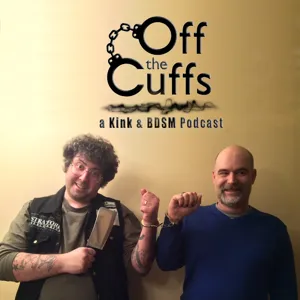Podcast Summary
Exploring the slow pace of employers dropping degree requirements for high-paying jobs: Despite decreasing unemployment and job growth, many high-paying positions still require a college degree, leaving a large portion of the population without access. The importance of creating non-degree high-paying jobs is emphasized, but progress is slow.
While the unemployment rate continues to decrease and employers are adding jobs, many of these new positions require a 4-year degree, leaving a significant portion of the population without access to these opportunities. President Biden has emphasized the importance of creating high-paying jobs that do not require a college degree, but the number of employers dropping degree requirements is increasing at a very slow pace. This issue was further explored on The Indicator from Planet Money, featuring an economist and workers without degrees, including one named Beyonce, who exemplifies the potential for success without a college education. The BBC, a sponsor of the show, was highlighted as a provider of information and stories that connect people beyond borders, emphasizing the importance of diverse perspectives and experiences.
Sponsors Offer Resources for Personal Growth and Opportunities: Beyonce and Santiago's experiences at the Hillsborough County clerk's office demonstrate the value of seizing opportunities, even without a college degree, for personal growth and career success.
The BBC and Mint Mobile, as sponsors of NPR, offer valuable resources - the BBC with global news and inspiration, and Mint Mobile with affordable communication plans. Meanwhile, a conversation between two young adults, Beyonce and Santiago, reveals the importance of seizing opportunities, even without a college degree. They met while working part-time jobs at the Hillsborough County clerk's office, each starting their adult careers after high school. Their experiences highlight the potential for growth and learning beyond traditional educational paths.
On-the-job skills are gaining importance in the job market: Over 136,000 people were hired last year without a degree, emphasizing the value of skills gained through practical experience.
As the job market shifts away from degree requirements, there is a growing need for workers to acquire skills outside of traditional educational institutions. Santiago, for instance, learned essential email communication skills on the job, which was not a priority for him before. Similarly, Beyonce enhanced her customer service skills at work. As fewer Americans are going to college and enrollment in trade schools is increasing, employers are recognizing the value of skills acquired through on-the-job training. According to the Burning Glass Institute, about 97,000 people were hired last year without a degree requirement, out of the 70,000,000 people hired in total. While academic training remains essential for some professions, the importance of skills learned through practical experience is becoming increasingly recognized.
Only 20% of companies follow through with degree-less hiring: Around 20% of industries are actively hiring workers without degrees, while most (45%) only remove degree requirements but maintain their hiring trends, and 5% initially drop the requirement but end up hiring more degree holders due to generational workforce changes.
While many companies express interest in expanding their applicant pool and hiring workers without degrees, only a small percentage (about 20%) are actually following through. These leading industries include real estate, admin support, and public administration. However, around 45% of companies are in a "name only" group, removing degree requirements but not making any significant changes to their hiring trends. The remaining 5% are "backsliders," who initially drop degree requirements but then end up hiring a higher share of degree holders. This phenomenon can be attributed to the fact that older workers are less likely to have degrees, and as they retire, they're replaced by younger, more degreed workers, making it a habit for employers to continue relying on degrees as a hiring criterion.
Dropping Degree Requirements for Certain Jobs: Employers may no longer require degrees for certain jobs, benefiting workers with a 25% pay increase and longer job tenure, and saving employers on hiring and retention costs
While degrees can provide a foundation of knowledge, they don't necessarily indicate specific skill sets. Employers often have to guess which "batches" of skills a graduate possesses based on their degree. Hopefully, more employers will drop degree requirements in certain jobs, benefiting both workers and the economy. Workers can expect a 25% average increase in pay and longer job tenure, while employers save on hiring and retention costs. This change would make everyone happier, according to the podcast's guest, Alex. The podcast was produced by NPR and sponsored by Mint Mobile and ShipBob. Mint Mobile offers premium wireless plans starting at $15 a month, while ShipBob simplifies inventory management and fulfillment for businesses selling through various channels.







